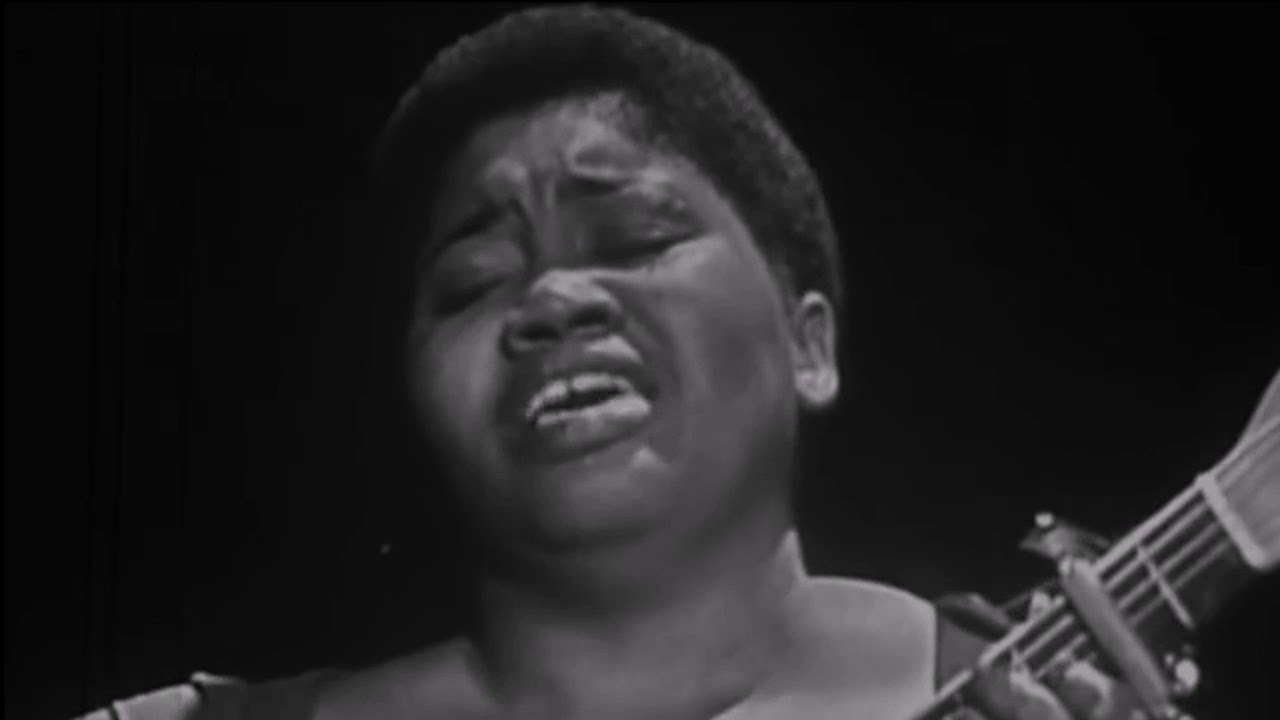Odetta Holmes, known simply as Odetta, is a national treasure. I first encountered her incredible voice as I was working my way through The Best of Broadside 1962-1988. Broadside was an underground magazine where many of the most well known protest songs of the 1960s and 1970s were first published and distributed. The publication brought together the folk revival of the 1960s with a deep concern for social and political causes, fostering artists like Bob Dylan, Malvina Reynolds and Pete Seeger.
Many of the songs Odetta recorded and performed were traditional folk songs from the African American and Appalachian tradition. And as Rhiannon Giddens would point out, these traditions are not disparate, but in fact deeply intwined. But we’ll get to that later. After hearing Odetta’s voice I immediately sought out a copy of Odetta Sings Ballads and Blues. In numbers ranging from “Joshua” to “Buked and Scorned”, “Glory Glory” and “Santy Anno”, Odetta’s voice blazes with both power and sensitivity. Her recording of “Waterboy” is bravely simple, all alone, accompanying herself on the guitar. She became a highly visible civil rights activist and is often called “The Voice of the Civil Rights Movement.” The reason why it is abundantly clear to all who hear her.
Rhiannon Giddens is a multi instrumental folk musician and singer who studied opera and classical voice in college. This is apparent in the effortless technical mastery of her instrument and expressive powers. I am fortunate to call Rhiannon a friend, and on numerous occasions I have heard her perform staggering concerts only to find out after that she is battling a wicked cold (the toll of a life lived on the road) and yet her voice still sounded as fresh as morning dew. After college Rhiannon shifted her focus to folk music, studying fiddling and learning traditional songs from, as she calls them, the “old timers,” and rose to prominence as a folk artist as a founding member of The Carolina Chocolate Drops (I highly suggest a listen to their records as well). Rhiannon is deeply immersed in the history of folk and traditional music in America. Her depth of knowledge on this subject is scholarly and she can readily trace the interwoven nature of musical traditions of this country.
Though differing in presentation, both of these artists’ versions of “Waterboy” are deeply satisfying. Odetta’s spare and beguiling; Rhiannon a powerhouse, a woman claiming her right. I draw these two recordings together to point out their shared tradition, their shared intensity and insistence; women standing up for what is right, and what is theirs.



0 Comments